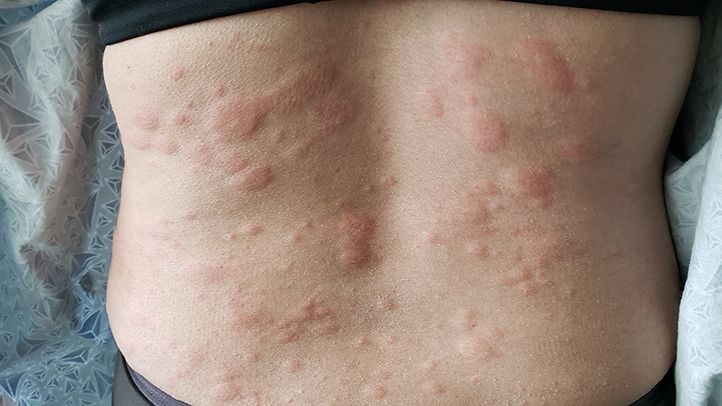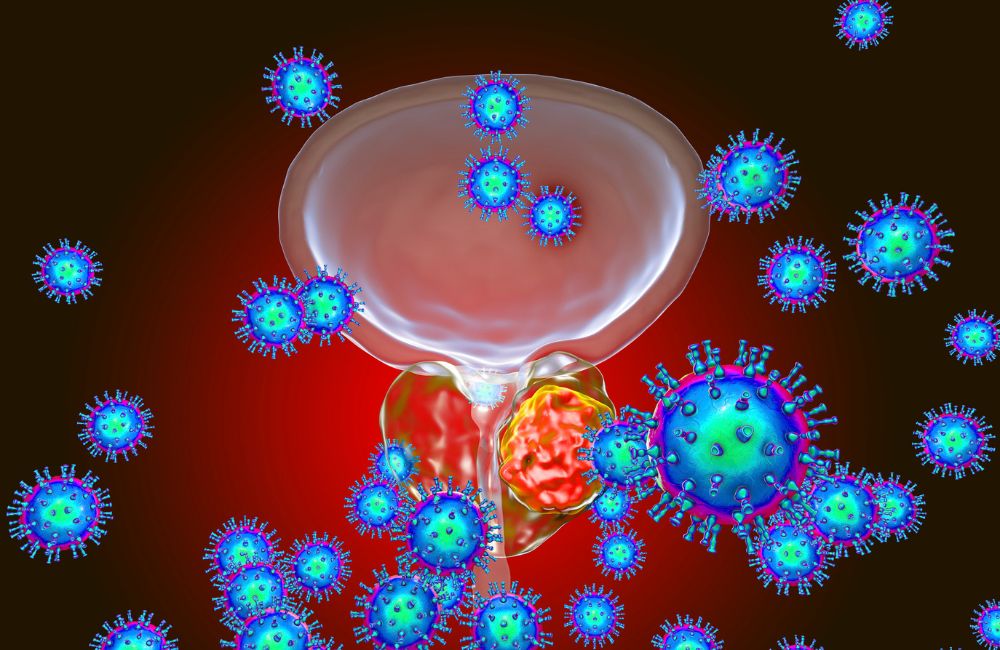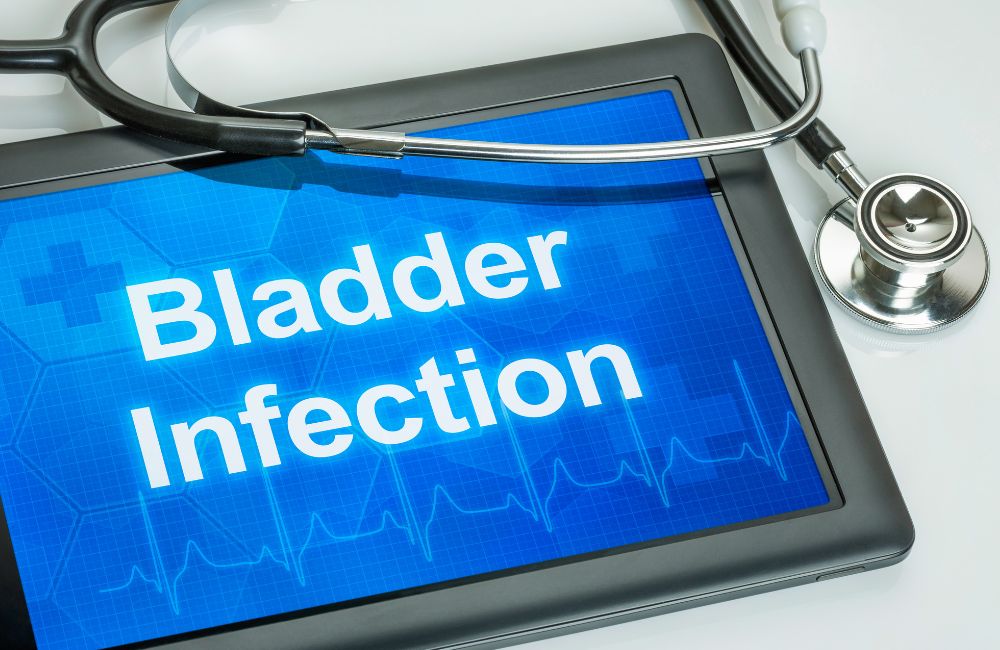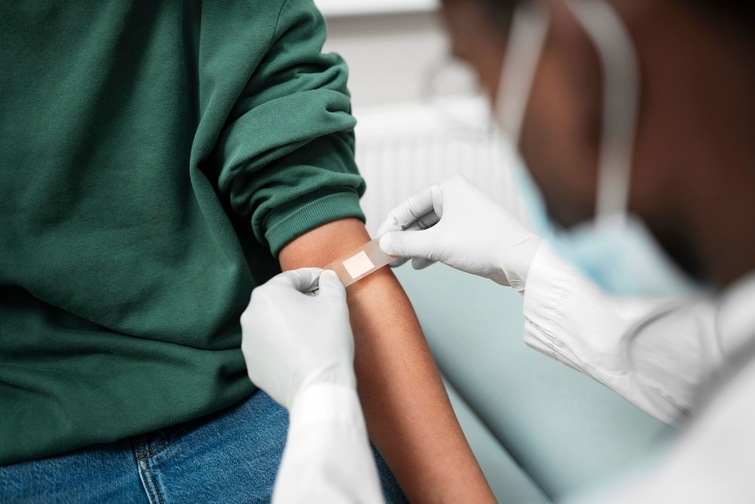
How to Care for a Staph Infection at Home Before Visiting Urgent Care in Stamford, CT
Staphylococcus aureus, commonly known as staph, is a type of bacteria often found on the skin or in the nose. While generally harmless, staph bacteria can cause infections if they enter the body through a cut or other wound. Recognizing the symptoms and knowing how to care for a staph infection at home is crucial before seeking professional help. Here, we will help you manage a staph infection at home and provide you with essential information on when to visit urgent care in Stamford, CT.
hat Are Staph Infections?
Staph infections occur when staphylococcus bacteria enter the body through an open wound, leading to an array of symptoms. These infections can range from minor skin issues to severe conditions affecting internal organs.
Common Causes and Risk Factors
- Contact with an infected person’s exposed skin: Touching or being in close contact with someone who has a staph infection can transfer the bacteria.
- Using infected objects: Sharing personal items like towels, clothes, utensils, or other objects contaminated with staph bacteria can spread the infection.
- Drug abuse: Injecting drugs with infected needles introduces staph bacteria directly into the bloodstream.
- Low immunity: Individuals with weakened immune systems due to medical conditions are more susceptible to staph infections.
- Using internal medical devices: Medical devices such as catheters, feeding tubes, or fitted artificial joints can become entry points for staph bacteria.
- Sharing gym and sports equipment: Staph bacteria can be present on shared gym and sports equipment, increasing the risk of infection.
- Long hospital stays: Extended durations in hospitals expose individuals to higher risks of encountering staph bacteria.
Symptoms to Watch Out For
The symptoms of a staph infection vary depending on the type and severity of the infection. Key symptoms depending on the infection include:
- Skin infections: These can manifest as bumps or sores that may swell or become painful. They may contain pus or other fluids, and a crust might form. In some cases, cellulitis can occur, causing the skin to become discolored and feel warm.
- Bone infections: Such infections may bring pain, swelling, warmth, and discoloration to the affected area. They can also cause fever and chills, indicating a more serious condition.
- Endocarditis: This is an infection of the heart’s lining, resulting in flu-like symptoms such as fever, fatigue, chills, a fast heartbeat, and shortness of breath. It can also lead to fluid buildup in the arms and legs.
- Food poisoning: When staph bacteria contaminate food, they can cause food poisoning, which leads to nausea, vomiting, diarrhea, fever, and possible dehydration.
- Pneumonia: A lung infection caused by staph bacteria, pneumonia results in high fever, a cough, chills, possible chest pain, and shortness of breath.
- Toxic Shock Syndrome (TSS): This severe condition causes a sudden drop in blood pressure, high fever, vomiting, diarrhea, and confusion. A sunburn-like rash may also develop.
How to Manage Staph Infection at Home
Effectively managing a staph infection at home can help prevent the infection from worsening and can help you prepare if there’s a need to visit urgent care in Stamford, CT.
1. Take Immediate Actions
Clean the Affected Area
Properly cleaning the infected area is the first step in home care. Use mild soap and warm water to wash the area gently, then pat it dry with a clean towel. This helps remove bacteria and reduces the risk of spreading the infection.
Apply Over-the-Counter Treatments
Over-the-counter antibiotic ointments, such as Neosporin, can help reduce infection. Apply a thin layer of the ointment to the affected area and cover it with a clean bandage. Pain relievers like ibuprofen or acetaminophen can alleviate pain and reduce inflammation.
2. Use Home Remedies and Natural Treatments
Warm Compresses
Warm compresses can alleviate pain and draw out pus. Soak a clean cloth in warm water, wring it out, and apply it to the affected area for 15-20 minutes, several times a day. This helps increase blood flow to the area, promoting healing and reducing discomfort.
Turmeric
Turmeric is a powerful natural remedy with antibiotic and anti-inflammatory properties due to its active component, curcumin. Curcumin demonstrated antimicrobial activity against both MRSA and its biofilms.
- Tonic Recipe: Mix turmeric powder, black pepper, water, and coconut oil. Drink this tonic several times a day to help combat the infection from the inside.
- Topical Paste: Mix turmeric powder with lime powder and water to form a paste. Apply it to the infected area to reduce pain and redness. This paste helps dry up pus and reduce infection.
Coconut Oil
Coconut oil has soothing and antibacterial properties, making it beneficial for treating staph infections. Studies suggest that coconut oil can be an alternative to antibiotics and modulate the immune system. It possesses both anti-inflammatory and antimicrobial properties.
- Application Method: Apply a dab of coconut oil to blisters for a cooling effect and faster healing. The oil’s antibacterial properties help reduce infection and promote gentle healing.
Apple Cider Vinegar
Apple cider vinegar has antibacterial and antifungal properties that effectively reduce infection.
- Topical Application: Soak a cotton ball in apple cider vinegar and apply it to the infected region. This helps reduce bacterial growth and soothe the skin.
- Paste Recipe: Mix apple cider vinegar with baking soda to form a paste. Apply it to the affected area to reduce pain and discomfort.
- Oral Tonic: Consuming a mixture of apple cider vinegar, honey, and water two to three times a day can help alleviate pain and combat the infection from within.
Tea Tree Oil
Tea tree oil has bactericidal properties that decrease bacterial growth, making it effective for treating staph infections. It can also reduce pain and itching, providing relief from the discomfort associated with staph infections.
- Topical Application: Apply a few drops of tea tree oil mixed with honey to the infected area. This mixture helps prevent bacteria from spreading and soothes boils.
Castor Oil
Castor oil’s anti-inflammatory and antimicrobial properties promote healing.
- Warm Application: Warm castor oil and apply it with a cotton swab to the wound. Cover the area lightly with a bandage or flannel cloth. This method provides necessary warmth to the wound, aiding healing and reducing pain.
Basil
Basil is known for its preventive and immune-boosting properties, making it useful for managing staph infections.
- Topical Juice Application: Apply fresh basil leaf juice to the affected area to help treat the infection. Basil’s properties help reduce symptoms like redness and itching.
- Basil Tea: Consuming basil tea regularly can improve immunity and help the body fight off infections.
- Basil Oil: Basil oil can also be applied to the infected area for its antibacterial and soothing effects.
Eucalyptus Oil
Eucalyptus oil has natural antibiotic properties and is effective against MRSA.
- Tea Preparation: Prepare a tea by boiling a few drops of eucalyptus oil in water. Drink it twice a day to help combat the infection from the inside.
- Topical Application: Apply eucalyptus oil directly to the affected area to benefit from its antimicrobial and anti-inflammatory properties.
Goldenseal
Goldenseal leaves exhibit antibiotic properties useful in treating staph infections.
- Washing the Infected Area: Mix goldenseal powder with water and wash the infected area several times a day. This helps reduce pain and discomfort and supports healing.
Witch Hazel
Witch hazel has antibacterial and antimicrobial properties and acts as an astringent.
- Topical Application: Apply a mixture of witch hazel and water to the infected area. This helps relieve redness, bursting blisters, and pain.
- Regular Baths: Regular witch hazel baths can prevent microbial infections and keep skin healthy, providing ongoing protection against staph infections.
Ginger and Manuka Honey
Ginger and manuka honey are a powerful combination for treating staph infections.
- Paste Recipe: Crush ginger and mix it with salt and manuka honey to form a paste. Apply this paste to the affected area two to three times a day. This mixture helps stop bacterial growth and reduces infection, promoting quicker recovery.
3. Monitor the Infection
Careful monitoring of a staph infection is crucial to ensure it is healing properly and not worsening.
Signs of Improvement
- Reduced redness and swelling: Indicates that the infection is subsiding.
- Less pain and tenderness: Suggests that the body’s immune response is effectively combating the infection.
- Healing of blisters or boils: Indicates that the skin is starting to recover.
Signs of Worsening Infection
If the infection shows signs of worsening, such as increasing redness, swelling, or pain, or if you develop a fever, it’s time to seek professional medical help. Urgent care in Stamford, CT, can provide the necessary treatments to manage severe staph infections.
4. Practice Proper Hygiene and Preventive Measures
Maintaining proper hygiene is vital in managing and preventing the spread of staph infections.
Proper Handwashing Techniques
Regular handwashing with soap and water is essential to prevent the spread of bacteria. Use hand sanitizer if soap and water are not available.
Handwashing Steps
1. Wet hands with clean, running water.
2. Apply soap and lather by rubbing hands together.
3. Scrub all surfaces, including the back of hands, between fingers, and under nails, for at least 20 seconds.
4. Rinse hands well under clean, running water.
5. Dry hands using a clean towel or air dry them.
Keep the Infected Area Covered
Keep the infected area covered with clean bandages or dressings to prevent bacteria from spreading to other parts of the body or to other people.
Bandage Tips
1. Change bandages regularly, especially if they become wet or dirty.
2. Use sterile bandages to prevent further contamination.
3. Ensure the bandage is securely placed but not too tight, allowing air to circulate and promote healing.
Avoid the Spread of Infection
- Do not share personal items: Avoid sharing towels, razors, clothing, or other personal items that can spread bacteria.
- Wash clothing and linens: Wash clothing, bed linens, and towels in hot water and bleach, if possible, to kill bacteria.
- Disinfect surfaces: Clean and disinfect surfaces and objects that may have come into contact with the infected area to prevent the spread of bacteria.
5. Strengthen Immune System
A strong immune system can help your body fight off infections more effectively.
Foods That Boost the Immune System
- Citrus fruits: Oranges, lemons, grapefruits, and other citrus fruits are rich in vitamin C, which boosts the immune system.
- Berries: Strawberries, blueberries, and raspberries are packed with antioxidants that support immune function.
- Leafy greens: Spinach, kale, and other leafy greens provide essential vitamins and minerals that enhance immunity.
- Nuts and seeds: Almonds, sunflower seeds, and other nuts and seeds are rich in vitamin E and other nutrients that support the immune system.
Importance of Hydration
Staying hydrated is crucial for overall health and can help your body fight infections. Drink plenty of water throughout the day to keep your body functioning optimally.
- Aim to drink at least 8 cups of water daily.
- Include hydrating foods like fruits and vegetables in your diet.
- Avoid excessive consumption of caffeine and alcohol, as they can dehydrate the body.
Supplements That May Help
- Vitamin C: Boosts immune function and supports the body’s defense against infections.
- Vitamin D: Essential for immune system health and can help prevent infections.
- Zinc: Plays a vital role in immune response and helps the body fight off infections.
- Probiotics: Promote gut health and enhance immune function by maintaining a healthy balance of bacteria in the digestive system.

When to Visit Urgent Care in Stamford, CT
While home care can be effective for mild staph infections, there are times when professional medical help is necessary. It’s crucial to recognize when to visit urgent care in Stamford, CT, to ensure proper treatment and prevent complications.
Symptoms That Require Immediate Medical Attention
- High fever: A high fever indicates that the infection may be spreading and becoming more serious. If you experience a fever, it’s important to seek urgent care in Stamford, CT, promptly.
- Spreading redness or streaks: If the redness around the infected area is spreading or you see red streaks, it’s a sign of a more severe infection. This warrants a visit to urgent care in Stamford, CT, for further evaluation and treatment.
- Severe pain that doesn’t improve: Persistent or worsening pain suggests that the infection may be deepening or spreading. Immediate medical attention at urgent care in Stamford, CT, is necessary.
- Pus that continues to drain or worsens: Continuous or increasing pus drainage indicates that the infection is not healing properly. Visiting urgent care in Stamford, CT, can help manage this issue effectively.
- Difficulty breathing or other signs of a severe allergic reaction: Seek immediate medical attention if you experience difficulty breathing or other severe symptoms.
- Swelling and warmth around the area: Increased swelling and warmth around the infected area may signify that the infection is spreading. Professional evaluation at urgent care in Stamford, CT, is advised.
- Lymph node swelling: Swollen lymph nodes near the infected area can indicate that your body is fighting a severe infection. Visiting urgent care in Stamford, CT, is essential for further examination and care.
- Changes in mental status: Confusion or changes in mental clarity can be a sign of a severe systemic infection. Immediate attention at urgent care in Stamford, CT, is necessary to address these symptoms.

What to Expect at Urgent Care in Stamford, CT
When visiting urgent care in Stamford, CT, medical professionals will assess the severity of your infection and provide appropriate treatment. Here’s what you can expect during your visit:
- Thorough examination: The healthcare provider at urgent care in Stamford, CT, will conduct a thorough examination of the infected area to determine the extent of the infection and identify any signs of complications.
- Prescription antibiotics: Antibiotics are often necessary to fight the infection effectively. The medical professional at urgent care in Stamford, CT, will prescribe the appropriate antibiotics based on the severity and type of staph infection.
- Draining of abscesses or boils: In some cases, medical professionals may need to drain abscesses or boils to remove pus and promote healing. This procedure is done under sterile conditions to prevent further infection.
- Pain management: Urgent care providers in Stamford, CT, can recommend or prescribe pain relievers to manage pain and discomfort associated with the infection.
- Lab tests and cultures: If necessary, the medical professional at urgent care in Stamford, CT, may take a sample from the infected area to perform lab tests and cultures. This helps identify the specific bacteria causing the infection and ensures the prescribed antibiotics are effective.
- Referrals to specialists: If the infection is severe or requires specialized care, urgent care in Stamford, CT, can provide referrals to dermatologists, infectious disease specialists, or surgeons for further evaluation and treatment.
- Recommendations for further care and follow-up appointments: After the initial treatment, you may need to follow up with your primary care physician or a specialist for ongoing care and monitoring. The team at urgent care in Stamford, CT, will provide detailed instructions on how to care for the infection at home and schedule necessary follow-up appointments.
Take Charge of Your Health with DOCS Urgent Care Stamford
If you suspect a staph infection, don’t wait for it to worsen. While home remedies and proper hygiene can help, seeking professional medical care is crucial for effective treatment and prevention of complications. For residents of Stamford, CT, DOCS Urgent Care Stamford is here to provide you with expert medical attention. Visit DOCS Urgent Care Stamford for prompt, reliable, and comprehensive care.
Trust DOCS Urgent Care Stamford to help you manage and recover from staph infections with the care you deserve.

Recent Posts
- Top 6 Home Remedies for Tick Bites and When to Seek Urgent Care in Norwalk, CT
- 4 Best Sleeping Positions for Sinusitis Relief: Insights from Urgent Care in Stamford, CT
- 10 Tips for Managing Nausea During Pregnancy: Advice from a Primary Care Doctor in West Hartford, CT
- 6 Essential Steps to Take After a Scorpion Sting – Advice from a Primary Care Doctor in Bridgeport, CT
- 10 Warning Signs That Your Child’s Vertigo Requires Medical Attention from a Primary Care Doctor in Danbury, CT
Categories










































































